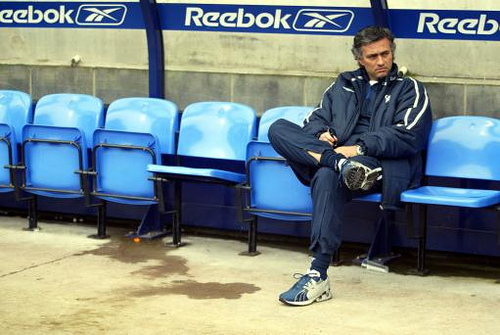So we’ve reached the halfway point of this season’s Champions League group stage matches and what a dramatic week it was, there are a few questions I want to consider from this week that could well define the rest of the Champions League season.
Are English teams no longer the dominant force in Europe?
This question keeps popping up. In both the 2007-2008 and 2008-2009 Champions League tournaments 3 of the 4 semi-finalists were from England. However since then only 2 of the 12 semi finalists have been from England. This week Chelsea, Arsenal and Manchester City all suffered humiliating losses while dodgy old Manchester United typically came back from 2-0 down to win 3-2 at home, this time against lowly Braga of Portugal. United managed to save face and yeah yeah yeah well done on coming back from 2-0 down, like that never happens…Nevertheless, no English side can come out of this week feeling great about themselves. This rings true particularly for Man City, who after spending a mind boggling sum of money on world class players, look set to crash out of the competition in the group stage for the second year in a row. Arsenal were outplayed at home by German side Schalke, losing 2-0 while Chelsea were disappointing to say the least losing 2-1 away in Ukraine against Shakhtar Donetsk. Similar questions were being asked last year after Manchester United and Manchester City failed to qualify from their groups, while Chelsea were the only English team to make it past the first knockout stage (going on to win the tournament). However it should be remembered that since 2005 only one Champions League final has been contested with no English teams (the 2010 final between Inter of Italy and Bayern Munich of Germany). City look dead and buried this year, but I still expect Arsenal, Chelsea and United to progress to the next stage. The aura of invincibility that English teams once held when playing at home in Europe is slowly but surely starting to wear off, but I wouldn’t say they’re a totally spent force yet.
So is there a dominant force right now?
I don’t think so, but that’s what might just make this year’s competition a real thriller. As discussed above English teams are not as impervious as they once were, but I don’t agree with the argument that Spain is the new England because the only Spanish teams really capable of winning the competition are Barcelona and Real Madrid, indeed they are the only two Spanish teams since 2006 to reach the semi-final stage. It was a good week for German teams though, with Schalke beating Arsenal and Borussia Dortmund beating heavily fancied Real Madrid 2-1. Dortmund in particular have a magnificent young side and if they can keep the team together for a few years they’re going to be a real force. In financial terms, German football seems far more sustainable than in England or Spain, and with UEFA’s Financial Fair Play rules set to come into force and stop mega rich clubs from spending without end, it may just be that the future is European football lies in Germany.
Will Manchester City sack Roberto Mancini?
With only one point, a draw and two losses from their opening three Champions League games, Man City manager Roberto Mancini has acknowledged City need a miracle to qualify for the next stage. Having won the English Premier League last season, City have been unable to transfer their domestic form onto the European stage. To be fair to them, they are in the toughest Champions League group, as they were last season when they failed to qualify. However it’s a fair assumption that City’s mega rich owners would expect a bit better from their team in Europe given the amount of money invested in their team. Chelsea owner Roman Abramovich wielded the managerial axe on several occasions in the quest to find a manager who could win the Champions League before they did last year under Roberto Di Matteo, but I don’t think City’s owners are that ruthless. City do however need to turn around their form both in England and in Europe, because a poor defence of their Premier League title coupled with their likely early exit from the Champions League may just seal Mancini’s fate.
Can Barcelona win the competition this year?
There’s no doubt Barca have been Europe’s best team since 2009, but teams are starting to figure out how to counter their free flowing attacking style. Inter Milan in 2010 and Chelsea in 2012 knocked Barcelona out at the semi final stage playing a defensive, counter-attacking style. They put as many players as possible behind the ball, denying Barcelona they space and time they so desperately need for their brilliant passing play. Celtic played the same way against Barca this week and were denied a draw by a last minute winner for Barcelona from Jordi Alba. Going into the game Barca were expected to crush Celtic by as many as six goals, but the Hoops were only 30 seconds away from what would have been a magnificent result. We may well see more teams play ‘The Chelsea way’ against Barca, and that’s going to be very frustrating for Barca who are going to have to figure out how to overcome the stubborn defensive tactics of the opposition. Barca may not score as many goals in the Champions League this year as they have become accustomed to, but any side with the likes of Messi, Xavi, Iniesta and Villa in it definitely has enough quality to beat any opposition.
As for the best goal of the competition so far, I might be biased but for me it has to be Brazil’s young gun Oscar for Chelsea against Juventus.















